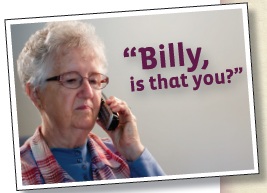Contest
In conjunction with the Caring for a Person with Memory Loss conference and our support of organizations that provide education and assistance to those dealing with Alzheimer’s Disease, we’re offering a chance to win a $100 gift card to Parasole Restaurants PLUS a $100 donation to the Alzheimer’s Association in your name.
Enter by June 28!
 Home Instead Senior Care of Minneapolis is committed to making coping with Alzheimer’s and dementia-related issues, such as memory loss as easy as possible. That is why we were a proud sponsor of the Caring for a Person with Memory Loss Conference in Minneapolis, MN held on Saturday, June 1st. According to Joseph Gaugler, Ph.D., coordinator of the conference, “The Caring for a Person with Memory Loss conference is designed to share tools, skills, resources, information, and wisdom with families and care professionals about the most effective ways to care for persons with memory concerns. With more than 5 million people in the U.S. with Alzheimer’s disease or a related dementia and 15.4 million people provided care for these individuals, the need to share relevant, effective care approaches and ideas to improve the quality of life of persons with memory loss is more critical than ever. To this end, our June 1st, 2013 Caring for a Person with Memory Loss conference will touch on several key topics including different types of dementia, family dynamics, art therapy, and abuse issue in person with memory loss. As this conference is a community education event and free for families, the kindness of sponsors such as Home Instead Senior Care of Minneapolis is critical to help us provide speaker honoraria, offer copies of presentation materials to attendees, provide refreshments to attendees, and live stream and record the conference for future viewing by attendees and others.”
Home Instead Senior Care of Minneapolis is committed to making coping with Alzheimer’s and dementia-related issues, such as memory loss as easy as possible. That is why we were a proud sponsor of the Caring for a Person with Memory Loss Conference in Minneapolis, MN held on Saturday, June 1st. According to Joseph Gaugler, Ph.D., coordinator of the conference, “The Caring for a Person with Memory Loss conference is designed to share tools, skills, resources, information, and wisdom with families and care professionals about the most effective ways to care for persons with memory concerns. With more than 5 million people in the U.S. with Alzheimer’s disease or a related dementia and 15.4 million people provided care for these individuals, the need to share relevant, effective care approaches and ideas to improve the quality of life of persons with memory loss is more critical than ever. To this end, our June 1st, 2013 Caring for a Person with Memory Loss conference will touch on several key topics including different types of dementia, family dynamics, art therapy, and abuse issue in person with memory loss. As this conference is a community education event and free for families, the kindness of sponsors such as Home Instead Senior Care of Minneapolis is critical to help us provide speaker honoraria, offer copies of presentation materials to attendees, provide refreshments to attendees, and live stream and record the conference for future viewing by attendees and others.”
The conference was a huge success! Thank you to Joseph Gaugler and others for providing this valuable education and awareness to people caring for those with Alzheimer’s and dementia.
Conference Committee
Joseph E. Gaugler, PhD, is an Associate Professor and McKnight Presidential Fellow in the School of Nursing and Center on Aging at the University of Minnesota. His research focuses on Alzheimer’s disease, family caregiving, and clinical interventions for these individuals.
Mark Reese, MA, LPC, LAMFT, is a study counselor at the University of Minnesota. His work focuses on enhancing clinical services for families caring for relatives with memory loss.
University of Minnesota Caregiver Registry
As Dr. Gaugler’s research program continues to grow, he would like to ask you to take a few minutes and consider being a part of the University of Minnesota Caregiver Registry. Becoming part of the registry does not enroll you in any study, but it provides Dr. Gaugler with permission to contact you in the future about any upcoming opportunities to participate in his research as well other basic information. Filling out the University of Minnesota Caregiver Registry form should not take more than 5 minutes. If you have already done this for us and nothing has changed since you filled it out, there is no need to fill out another form. However, if something has changed since you last filled out a Registry form, please feel free to fill out a new form:
If you are a family member or friend who knows someone with memory loss or is helping them, please fill out the University of Minnesota Caregiver Registry-Family form here:
https://umsurvey.umn.edu/index.php?sid=97146&lang=um
If you are a professional who cares for persons with memory loss or their families, please fill out the University of Minnesota Caregiver Registry-Professional form here:
https://umsurvey.umn.edu/index.php?sid=36229&lang=um
Caring for a Person with Memory Loss (CPWML) Annual Conference was Streamed
The CPWML conference recording will be made available on the virtual library site at: http://tinyurl.com/CPWMLresources after the conference. This live stream will be interactive, meaning you can participate in Q & A with presentation speakers.
Caring for a Person with Memory Loss Conference Virtual Library
If you would like to revisit the information presented in this or past Caring for a Person with Memory Loss conferences, please visit our virtual conference library at http://tinyurl.com/CPWMLresources. There you will find Power Point slides and handouts of each presentation, information on how to access recorded presentations, speaker contact information and other resources from past conferences. We have held Caring for a Person with Memory Loss conferences since Spring 2008, and there is a lot of great, free information in the virtual library for you, your family members, or clients!
Related articles
- Alzheimer’s Disease or Other Dementias Family Education Workshop (seniorcareminneapolis.net)
Related articles
- Caring for a Person with Memory Loss Conference (seniorcareminneapolis.net)
- Alzheimer’s Disease or Other Dementias Family Education Workshop (seniorcareminneapolis.net)






 Heading home to Minneapolis to visit a senior for the holidays? Often times, it isn’t until we see for ourselves how Mom or Dad is living that we get involved in their care at home and begin to
Heading home to Minneapolis to visit a senior for the holidays? Often times, it isn’t until we see for ourselves how Mom or Dad is living that we get involved in their care at home and begin to 

 Plan ahead
Plan ahead Relive memorable moments
Relive memorable moments After reading the 3 stories of senior fraud in
After reading the 3 stories of senior fraud in  Cons against older adults aren’t always acts of blatant theft. They can be subtle, like the retailer who over-charges an older adult or an individual who bills for a service and doesn’t finish the job. A 2011 MetLife Study has identified three elder financial abuse strategies: crimes of occasion, crimes of desperation and crimes of predation.
Cons against older adults aren’t always acts of blatant theft. They can be subtle, like the retailer who over-charges an older adult or an individual who bills for a service and doesn’t finish the job. A 2011 MetLife Study has identified three elder financial abuse strategies: crimes of occasion, crimes of desperation and crimes of predation.

 Learn more from our friends at Home Instead, Omaha!
Learn more from our friends at Home Instead, Omaha! Our parent organization, the
Our parent organization, the  6. Shrug off the critics. Volunteering takes all kinds of seniors, and some of them can take the roles and responsibilities of volunteering a touch too seriously. If faced with criticism, shrug it off – especially if it is a one time thing. The good news is that tomorrow is likely to be a better day. And if not, there are many more opportunities to explore such as
6. Shrug off the critics. Volunteering takes all kinds of seniors, and some of them can take the roles and responsibilities of volunteering a touch too seriously. If faced with criticism, shrug it off – especially if it is a one time thing. The good news is that tomorrow is likely to be a better day. And if not, there are many more opportunities to explore such as  The faces of both the seniors and the volunteers lit up as gifts were distributed to seniors in nursing homes, low income senior housing, adult day centers and personally nominated individuals. Just a few of the senior residences include the Ebenezer Tower, Friendship Center and Augustana.
The faces of both the seniors and the volunteers lit up as gifts were distributed to seniors in nursing homes, low income senior housing, adult day centers and personally nominated individuals. Just a few of the senior residences include the Ebenezer Tower, Friendship Center and Augustana. This huge success would not have been possible without our partners which include Byerly’s & Lund’s Pharmacy locations, Starbucks, The Brost Clinic, Health Partners, Minneapolis Women’s Club, Upsher-Smith, Park Nicollet Orthopedic Clinic, Allina Health Clinic Medical Arts, Oakwood Elementary, MN School of Business and Herzig University.
This huge success would not have been possible without our partners which include Byerly’s & Lund’s Pharmacy locations, Starbucks, The Brost Clinic, Health Partners, Minneapolis Women’s Club, Upsher-Smith, Park Nicollet Orthopedic Clinic, Allina Health Clinic Medical Arts, Oakwood Elementary, MN School of Business and Herzig University.